Swiss women have come a long way, but still face discrimination
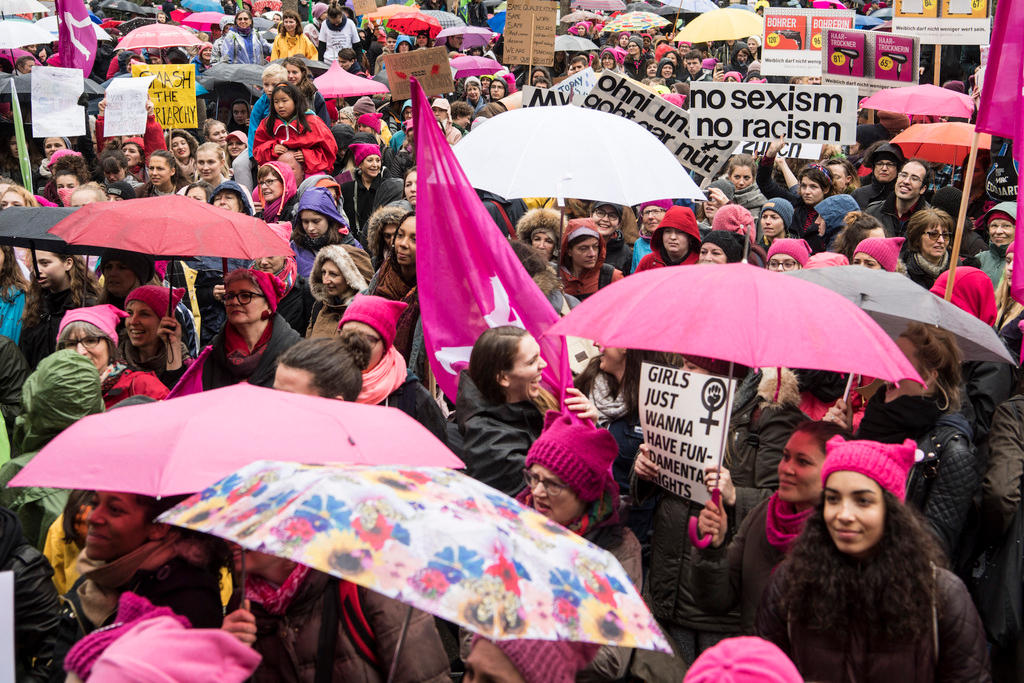
Switzerland has been swept up in the grassroots ‘#metoo’ movement and the growing dissatisfaction among women with the status quo. A lot has changed since 1971 when Swiss women won the right to vote.
The social media campaign against sexual harassment and for gender equality, which started in the United States last year, has given fresh energy to today’s women’s movement in Switzerland, according to Silvia Binggeli, editor-in-chief of the Swiss women’s magazine, AnnabelleExternal link, which was founded 80 years ago.
She participated in the Women’s March in Zurich one year ago and was impressed by the number of women and men from multiple generations who turned out. She argues, “there is a women’s movement underway today. I see younger colleagues that are much more politically active than ten years ago.”
However, gender equality remains elusive in both Switzerland and the US.
In the US, the women’s movement is often described in three waves starting with the first women’s rights convention in Seneca Falls, New York in 1848 followed by the civil rights movement in the 1960s and 70s, and the third wave in the 1990s, partially in response to the Anita Hill sexual harassment case. (SomeExternal link believe today’s movement represents the fourth wave.)
In contrast, the movement in Switzerland is more like a long, rocky alpine ascent.
Fabienne AmlingerExternal link of the Interdisciplinary Center for Gender Studies at the University of Bern (IZFG) explains that “the wave metaphor is difficult to apply to the Swiss context. There was not a large-scale mobilization of Swiss women around one goal. There were actually many wings of the Swiss movement fighting for different rights”.
Some of the first records of any mobilization of Swiss women was in 1847 when 157 Bernese women successfully ended the practice of gender tutelage, a form of guardianship on the basis of sex, in canton Bern.
One woman who understands the situation on both sides of the Atlantic, is Margrit Zinggeler, a Swiss woman who moved to the US in her early 20s.
Author of Swiss Maid: The Untold Story of Women’s Contributions to Switzerland’s SuccessExternal link, Zinggler argues “we have been taught that the history of Switzerland is one of men, wars, and contracts. By telling the stories of the many silent and silenced women who were essential to Switzerland’s success, we can understand how culture, traditions, and institutions shaped and influenced our understanding of gender today, and what it takes to achieve equality.”
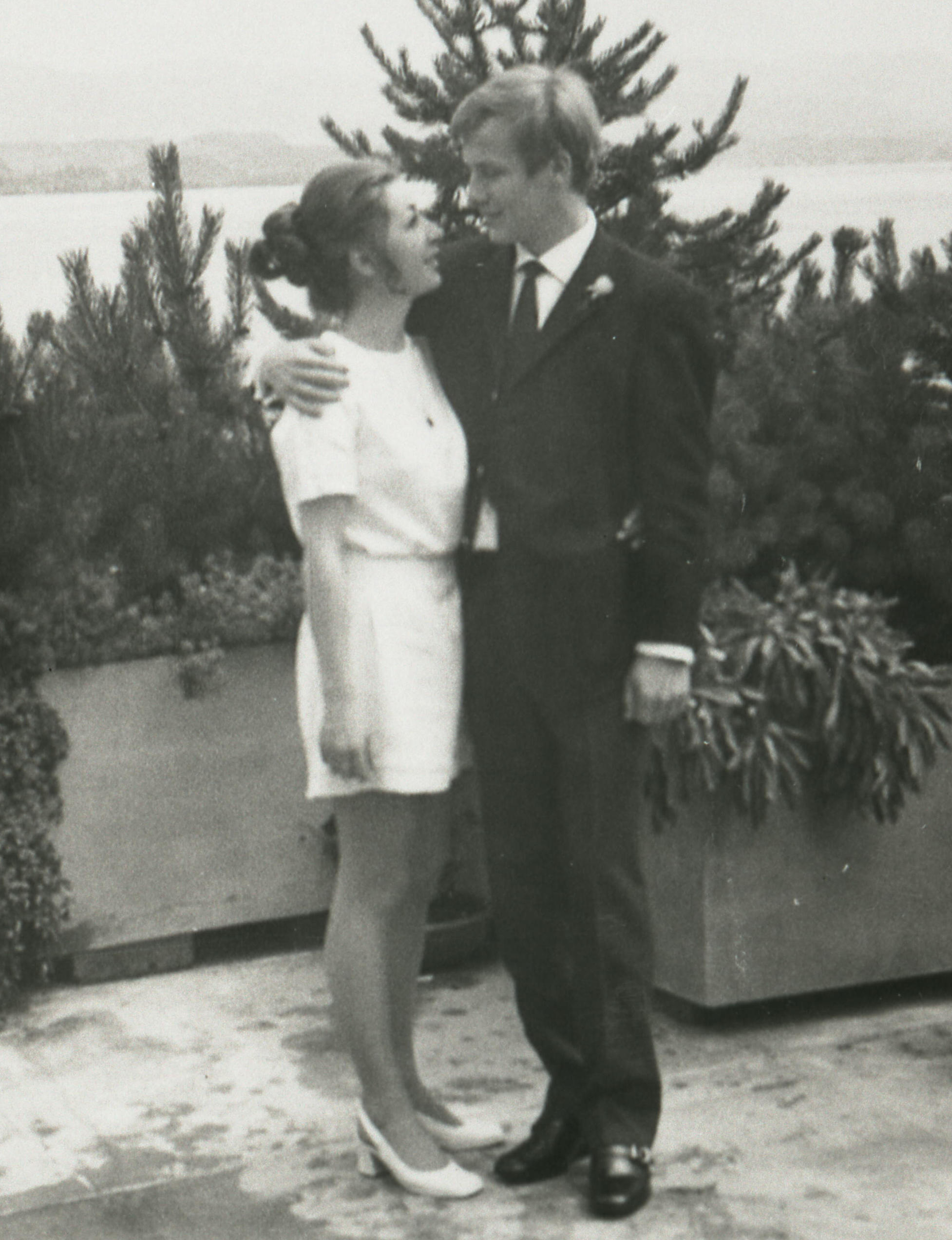
More
Telling the untold stories of the Swiss women’s movement
The long road to solidarity
Zinggeler, a professor of German at Eastern Michigan University, points out that there was a powerful wing pushing for social and economic rights, including access to secondary and university education, before political rights. “It was only after women were educated and realized that equality rights couldn’t be achieved without a voice in politics that the situation changed.”
There were also stark divisions among women themselves, which Amlinger believes was one of the reasons why it took so long to grant suffrage. She says, “women were divided along political party lines, across cantons, and between rural and urban areas.”
One division concerned the traditional view of women as homemakers, enshrined in Swiss Civil Law until 1988. Zinggeler explains that “this view was heavily influenced by religion but also by the importance placed on skills of household management and caregiving in Swiss society.”
It wasn’t until the 1980s, that schools ended compulsory gendered classes with home economics and handicrafts for girls and workshop for boys.
As portrayed in the film, The Divine Order (Die Göttliche Ordnung), a significant portion of the population thought families were better off if women weren’t involved in “dirty” politics. These fears are captured in some of the advertisements from the anti-suffrage campaign at the time.
A revolution by the rules
In an interview in 2011, six years before her death, Marthe Gosteli, a women’s suffrage pioneer, described the fight for political rights as “exhausting.”
Zinggeler explains that success in 1971 “was the result of 100 years of struggle and petitions.” From the first petition to the Federal Assembly [parliament] in 1886, women used constitutional complaints, referendums, more petitions, and eventually the first national vote on women’s suffrage in 1959 that was rejected by more than 65% of the male voting population.
Even after 1971, the movement in Switzerland has “largely followed the rules” according to Zinggeler, using formal petitions and processes to achieve its goals.
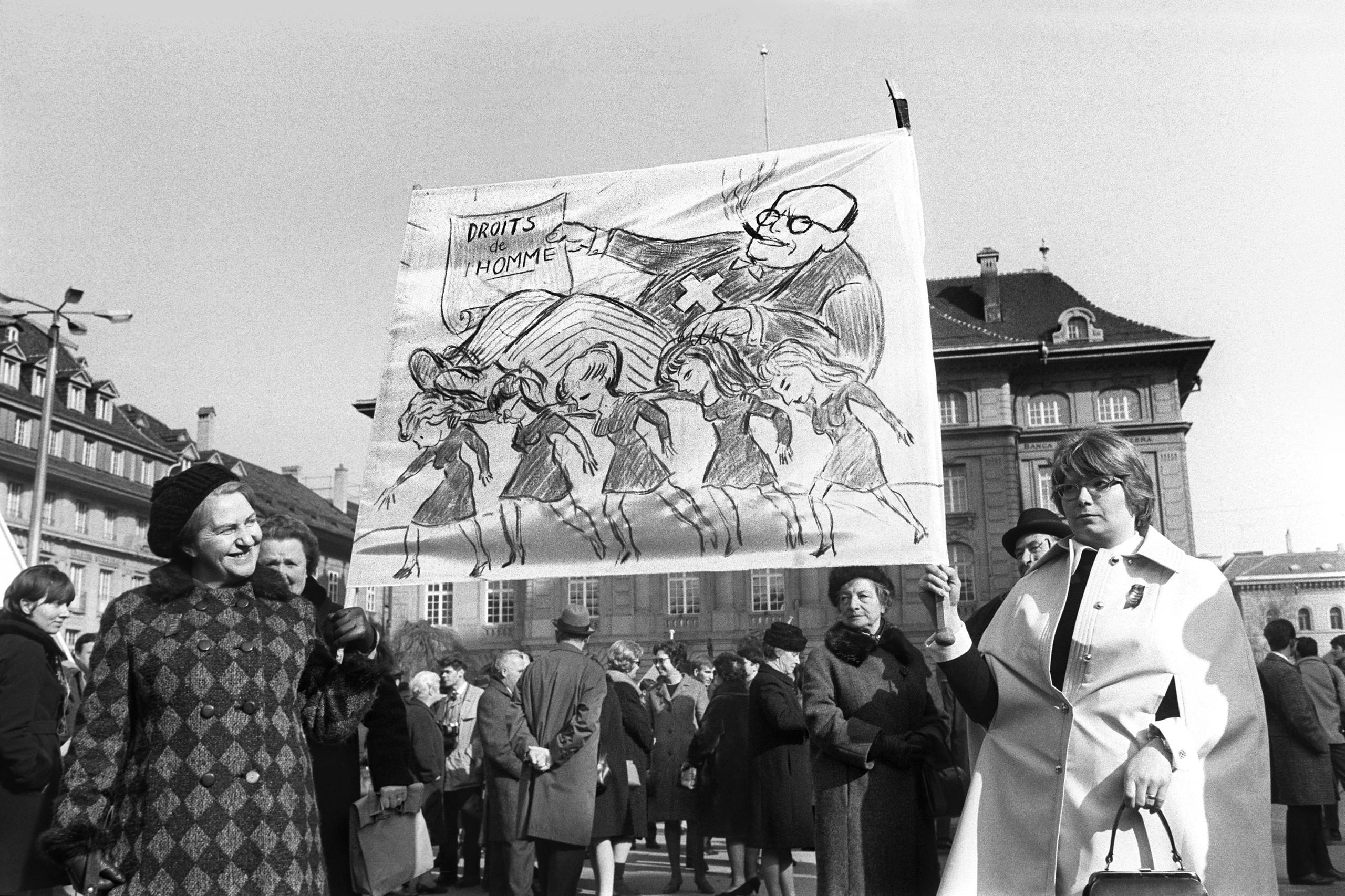
In contrast, the 1960s women’s liberation movementExternal link in the US used disruptive, provocative tactics such as strikes, massive protests, and sit-ins. The image of “bra-burning” feminists is so strongly associated with the movement that many Americans have accepted this falsehood as true.
There was one nationwide women’s strike in Switzerland in 1991 to protest the slow implementation of the equality article in the Constitution. There were other scandalous moments, for example, when the Social Democrat, Christiane Brunner, was not elected to the seven-member executive body, the Federal Council, triggering widespread protests and a major gender equality transformation process in Swiss politics.
Amlinger argues that, “as is well known, Switzerland’s federalist political system can take a comparatively long time to accomplish something. Often, however, achievements persist and are not reversed quickly or easily.”
Gender equality was eventually included in the Swiss Constitution in 1981, and maternity leave became law in 2005, neither of which have been achieved in the US. In addition, other rights guaranteed in both countries, like abortion rights, require constant defending in the US.
Feminism ‘on their own terms’
The struggle for gender equality is far from over in the US and Switzerland. In the next year or two, the Swiss will go to the polls to decide whether paternity leave should be included in the labour law. Discrimination in employment, pay inequity, and sexual harassment remain key challenges in both countries. Zinggeler notes that other points of contention in Switzerland include mandatory military service for males and prostitution, which is legal and regulated.
Today’s women’s movement goes beyond changing laws. It is also about putting laws into practice, something that can only be achieved by engaging women and men across all walks of life.
Binggeli explains that “Switzerland may not have Hollywood stars advocating for women’s rights like in the US but there is a vibrant community of female entrepreneurs, thinkers, and creators that are inspiring a new generation of women to take action in their own way and on their own terms.”
In her 2014 essay, We Should All Be Feminists,External link Nigerian author, Chimamanda Ngozi Adichie argues that being a feminist is recognizing “there’s a problem with gender as it is today and we must fix it, we must do better. All of us, women and men, must do better.”
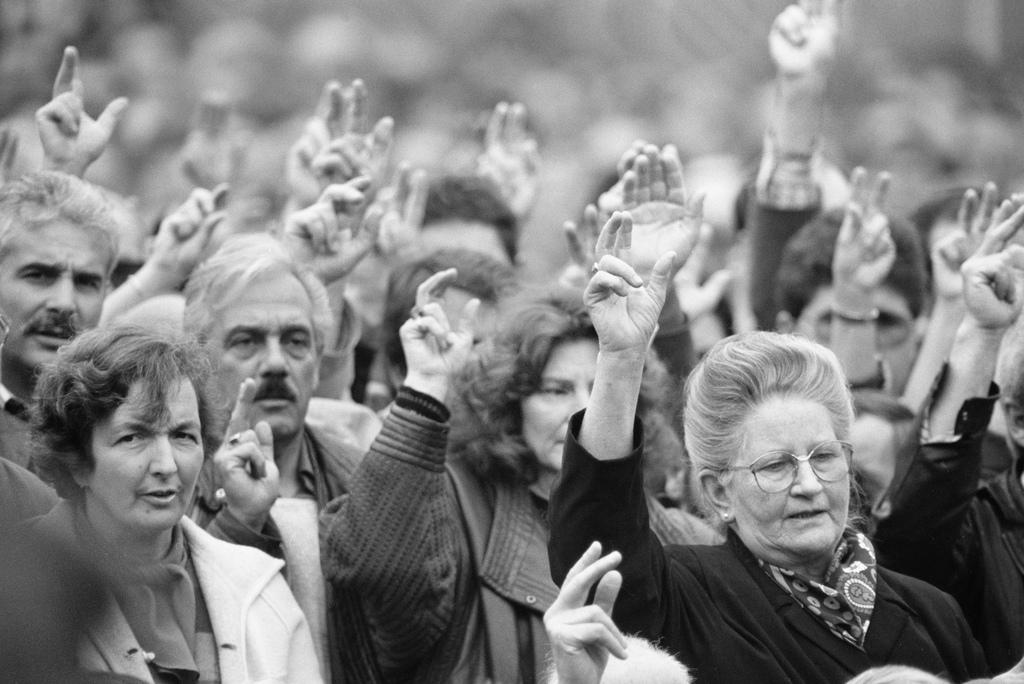
Equal pay for equal work is a constitutional requirementExternal link in Switzerland. However, according to the most recent data (2014)External link women earned almost 20% less in the private sector and almost 17% less in the public sector than men. The question of whether the Swiss parliament should use legal measures to compel employers to meet the obligations in the 1995 Act has been hotly debated over the last few years. Last month parliamentExternal link sent the Federal Council back to the drawing board after it completed a review of a bill that would require companies with more than 100 employees to conduct and publish a pay equity analysis every four years.
The bill drew criticism from all political aisles as some complained that it was too watered down and others believing that it created additional costly paperwork without a guarantee that it would benefit women.
The debate reflects key challenges to understanding what has been termed “unexplained” wage differencesExternal link referring to gaps that cannot be justified by variables such as education or job sector. The unexplained salary differenceExternal link is estimated to be 7%, amounting to women earning an average CHF7000 less per year than men. The unexplained portion could be because of unconscious bias or outright discrimination but could also be the result of women’s choices. These choices may be conditioned by childcare options available or support provided to pursue certain academic subjects.
Jessica Davis Plüss is an American living in Bern. She is an independent advisor and writer on corporate sustainability and the role of business in society. For the past five years, she has published several reports and articles on how companies can advance gender equality across their value chains

In compliance with the JTI standards
More: SWI swissinfo.ch certified by the Journalism Trust Initiative









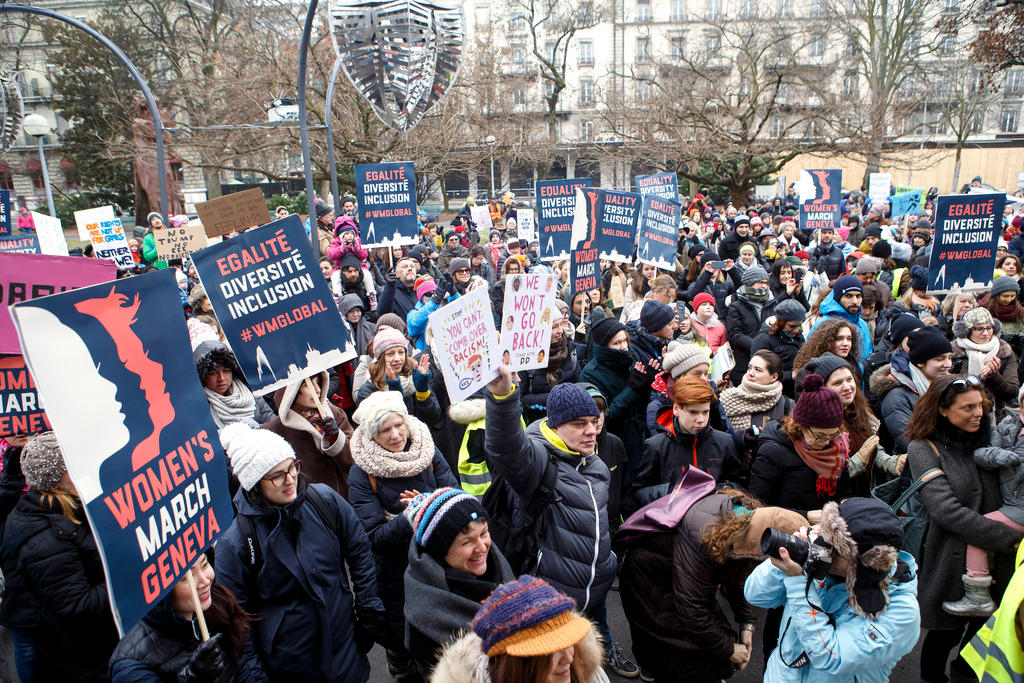


You can find an overview of ongoing debates with our journalists here . Please join us!
If you want to start a conversation about a topic raised in this article or want to report factual errors, email us at english@swissinfo.ch.